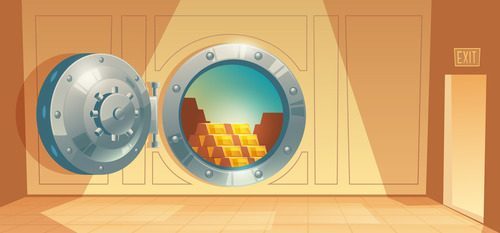Managing your money and investments can be a complicated juggling act. For those who struggle from paycheck to paycheck, investments might seem like a luxury for the rich, but that’s just not the case anymore. Today’s investment apps allow almost anyone with a bank account to dabble in the stock market. New investors can get started with as little as $5. Minimal investments won’t blossom into untold fortunes overnight, but they do offer an accessible entry point to everyone.
There are many factors to consider when investing, all of which can have a serious impact on your financial future. Even with proper planning, achieving your desired outcome is not guaranteed. That said, blindly spreading your money around is far more likely to end in disappointment or even disaster.
While you don’t need a Financial Planner Diploma to start investing, it certainly helps to trust your money to someone who does have one.
Prepare a Financial Roadmap

The key to ending up where you want to be financially is to first decide where that is. It would be nice if we could all retire early and be unreasonably wealthy, but that’s just not realistic. Taking an honest look at your entire financial situation will allow you to set a course with achievable goals. In many ways investing is a gamble, so risk tolerance should be taken seriously.
Long-term financial security might not sound particularly glamorous, but it is a reasonable and (usually) attainable goal if your money is handled wisely.
Establish Your Comfort Zone
Even the safest investments hold some degree of risk. It is important to understand that any investment can result in losing some or even all of your money. While bank deposits are federally insured, securities such as stocks, bonds, and mutual funds are not.
In the long term, higher-risk stocks and bonds often see better returns on your investment – some of them paying out generously. While the high reward is tempting, the possibility of losing your home if things go wrong should be a compelling enough reason to play it safer. In the short term, cash-equivalent assets such as bank certificates or treasury bills are far more stable. The primary risk with cash equivalents is that their growth is so minimal it can sometimes be outpaced by inflation.
Balance Your Portfolio

Fortunately investing is not limited to one extreme or the other. A proper financial portfolio contains a balance of higher-risk investments, tempered with a foundation of lower-risk investments. The proportion of risk you take should be weighed against the long-term goal you established in your roadmap. Relying too heavily on safe investments likely won’t be sufficient for your child’s college fund or your retirement. Balance accordingly!
Diversify Your Investments
One of the most common adages associated with investing is “Don’t put all your eggs in one basket.” It may be tempting to invest heavily in a single company that is performing well, but what goes up can also come crashing down. Selecting a group of investments within each asset category can protect you against inevitable fluctuations tied to individual companies.
Protect Yourself

There are many names for personal financial protection – nest egg, security blanket, emergency fund… Essentially they all come down to building insulation against unforeseen hardships. As your wealth grows, it is always prudent to set aside some of that money in a secure savings option. If a job loss or economic downturn hits, it’s reassuring to have the resources to fall back on until things improve.
Frequently Asked Questions

What do Financial Planners do?
- A Financial Planner’s primary job is to help clients manage their current money requirements while working towards the achievement of their long-term financial goals.
What’s the easiest way to get ahead financially?
- Very few investment opportunities pay as well as the money you can save from paying off high-interest loans. Credit card debt is a common reality for many, with interest amounts quickly snowballing over time. The quicker high-interest loans can be paid off, the quicker you can stop severe financial bleeds.
How do taxes affect investments in Canada?
- Tax-Free Savings Accounts (TFSAs) allow your investments to grow without incurring taxes on investment income. TFSAs can hold a variety of investments including cash, stocks, guaranteed investment certificates, and mutual funds. In most other cases, taxes are paid upon the sale of investments that gained in value since their initial acquisition.
Final Thoughts
If any of the above information was intimidating or confusing, don’t feel bad. That’s why so many people rely on professional Financial Planners to manage their money. Conversely, if you found the above fascinating and want to learn more about building profitable portfolios, perhaps a career in financial planning is the way to go!
ABM College offers a comprehensive Financial Planner Diploma program. In addition to gaining a versatile set of financial skills, it opens up several lucrative career options. On top of their base salary, most Financial Planners earn performance-based commissions, bonuses, and profit sharing.
On the subject of finances, don’t forget that February marks the start of tax season in Canada. Eager taxpayers will be able to file their income tax return online as early as February 20, 2023. Procrastinators will have until April 30, 2023 to do the same. If you don’t have a Financial Planner handy, you can read our recent blog for some helpful tips that will get you started.
Contact us now to learn how we can help you.
You can also read more industry-relevant blogs here.
About The Author

Content Editor & Writer, ABM College
As Content Editor at ABM College in Calgary, Alberta, Stephen plays a key role in advancing the college’s mission to provide relevant, high-quality training for today’s job market. He ensures all blog articles and web materials are accurate, clear, and genuinely useful for students, career changers, and industry professionals.
Stephen is also the author of a best-selling historical reference series documenting decades of computer and video gaming history — a body of work recognized by the Canadian Choice Awards.
Connect with Stephen on LinkedIn, explore his published works at Falcon Designs, or see his editorial expertise in action on the ABM College Blog.
